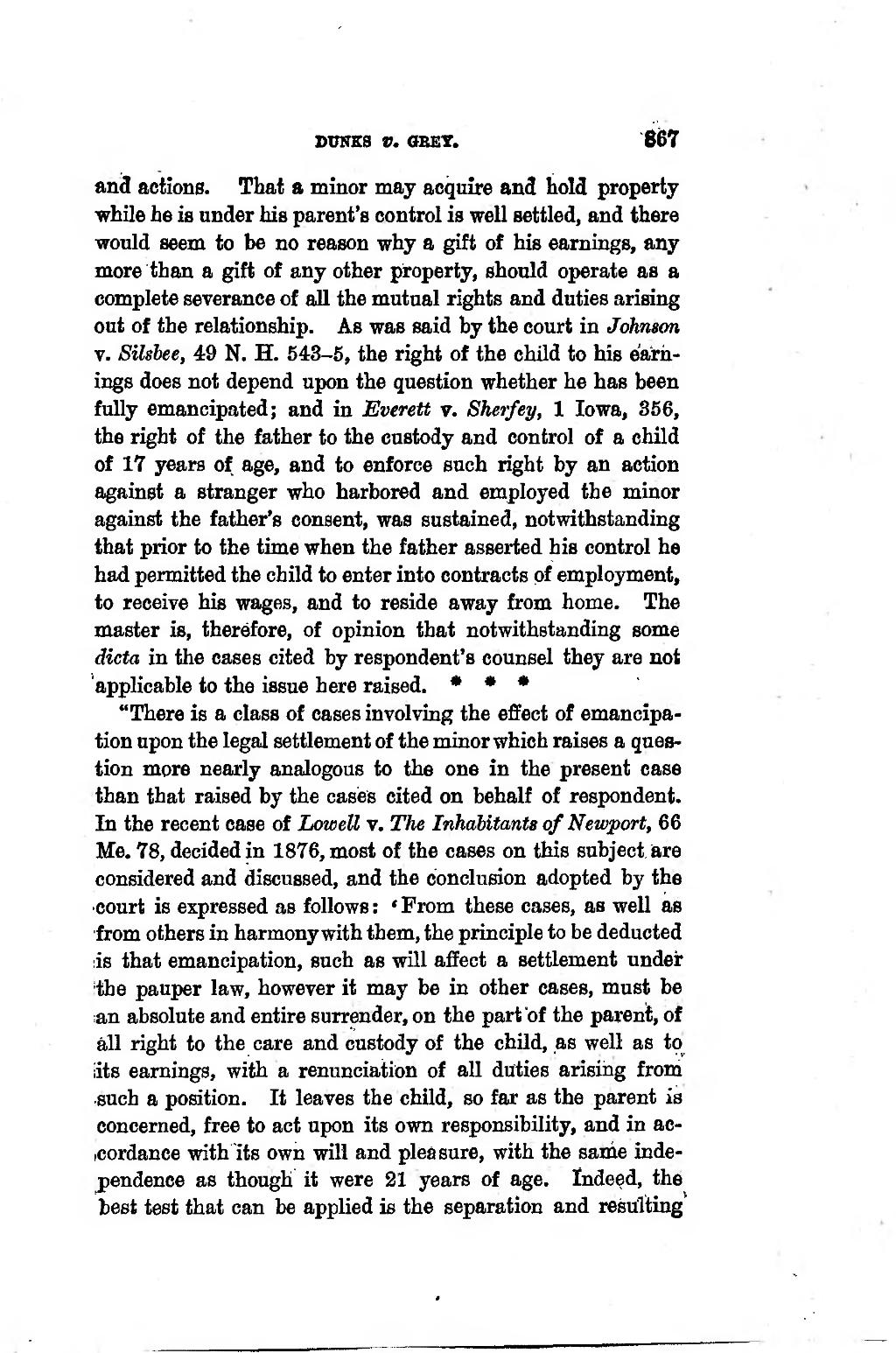smrKS V. asET. 867 �and actions. That a minor may acquire and hold property while he is under his parent's control is well settled, and there would seem to be no reason why a gift of his earnings, any more th an a gift of any other property, should operate as a complete severance of ail the mutual rights and duties arising out of the relationship. As was said by the court in Johnson V. Sîlsbee, 49 N. H. 543-5, the right of the child to his earn- ings does not depend upon the question whether he has been fully emancipated; and in Everett v. Sherfey, 1 lowa, 356, the right of the father to the custody and control of a child of 17 years of age, and to enforce such right by an action against a stranger who harbored and employed the minor against the father's consent, was sustained, notwithstanding that prior to the time when the father asserted his control he had permitted the child to enter into contracts pf employment, to receive his wages, and to reside away from home. The master is, therefore, of opinion that notwithstanding some dicta in the cases cited by respondent's counsel they are not applicable to the issue here raised. * • • �"There is a class of cases involving the effect of emancipa- tion upon the legal settlement of the minor which raises a ques- tion more nearly analogous to the one in the present case than that raised by the cases cited on behalf of respondent. In the recent case of Lowell v. The Inhabitants of Newport, 66 Me. 78, decided in 1876, most of the cases on this subject are considered and discussed, and the conclusion adopted by the court is expressed as follows : • From these cases, as well as from others in harmony with them, the prinoiple to be deducted is that emancipation, such as will affect a settlement undeir the pauper law, however it may be in other cases, must be an absolute and entire surrender, on the part of the parent, of ail right to the care and custody of the child, as well as to^ lits earnings, with a renunciation of ail duties arising from such a position. It leaves the child, so far as the parent is concerned, free to act upon its own responsibility, and in ac- icordance with "its own will and pleàsure, with the same inde- pendence as though it were 21 years of age. ïndeed, the best test that can be applied is the separation and resulting ����
